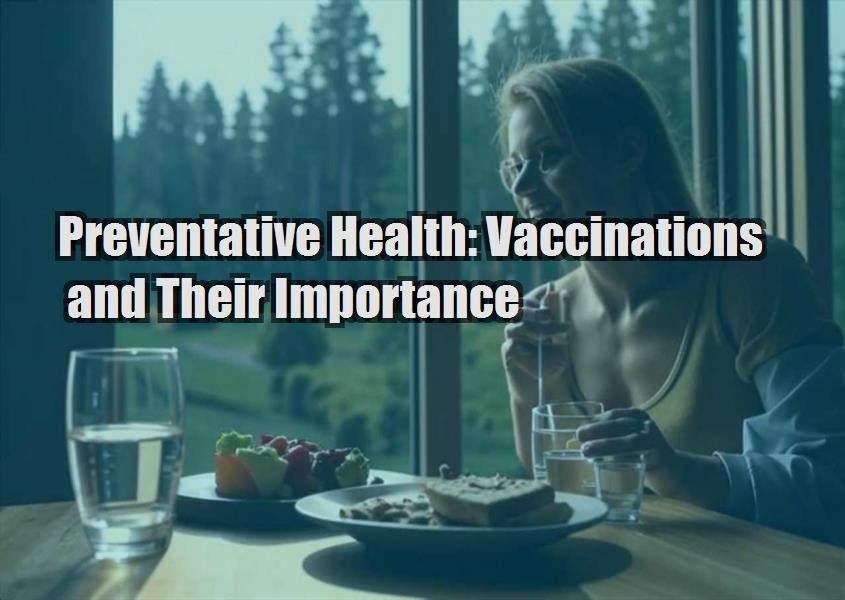typescriptCopy code
Vaccinations have been one of the most effective tools in public health, helping to prevent the spread of infectious diseases and protect individuals and communities. In this article, we will delve into the significance of vaccinations, how they work, and why it is essential to stay up-to-date with your immunizations.
What Are Vaccinations?
Vaccinations, also known as immunizations, are medical preparations given to individuals to stimulate their immune systems to recognize and combat pathogens such as bacteria and viruses. Vaccines typically contain weakened or inactive parts of a particular organism (antigen) that trigger an immune response within the body. This response allows the body to remember the pathogen and respond more effectively if it encounters the disease in the future.
How Do Vaccinations Work?
When a vaccine is administered, it introduces antigens to the body without causing the disease. The immune system detects these antigens and produces antibodies, which are proteins that neutralize or destroy the pathogen. This process not only helps the body fight off the infection if exposed in the future but also provides memory to the immune system, enabling a faster and more robust response upon subsequent exposures.
Types of Vaccines
There are several types of vaccines, each designed to protect against specific pathogens:
- Live-attenuated vaccines: Contain weakened forms of the virus or bacteria, which provoke a strong immune response without causing the disease. Examples include the measles, mumps, and rubella (MMR) vaccine.
- Inactivated vaccines: Contain killed pathogens. These vaccines typically require multiple doses to build up and maintain immunity. The polio vaccine is an example.
- Subunit, recombinant, polysaccharide, and conjugate vaccines: Contain parts of the pathogen (like proteins or sugars), which stimulate an immune response. The HPV and hepatitis B vaccines fall into this category.
- Toxoid vaccines: Target the toxins produced by bacteria rather than the bacteria themselves. The diphtheria and tetanus vaccines are examples.
- mRNA vaccines: A newer type that uses messenger RNA to instruct cells to produce a protein that triggers an immune response. The COVID-19 vaccines developed by Pfizer-BioNTech and Moderna use this technology.
The Importance of Vaccinations
Vaccinations play a crucial role in maintaining public health and preventing the spread of infectious diseases. Here are some key reasons why vaccinations are essential:
Protecting Individuals
Vaccines protect individuals from contracting and suffering from serious diseases. Diseases like measles, polio, and whooping cough can lead to severe health complications and even death. By getting vaccinated, you significantly reduce your risk of developing these illnesses.
Community Immunity (Herd Immunity)
When a significant portion of a population is vaccinated, it provides indirect protection to those who cannot be vaccinated, such as infants, the elderly, or individuals with weakened immune systems. This phenomenon, known as herd immunity, helps prevent outbreaks and the spread of contagious diseases.
Preventing Epidemics and Pandemics
Vaccinations are essential in controlling and preventing epidemics and pandemics. Widespread immunization can stop the spread of diseases and reduce the chances of a global health crisis. For instance, the global effort to vaccinate against smallpox led to its eradication in 1980.
Economic Benefits
Preventing disease through vaccination is more cost-effective than treating illnesses. Vaccinations reduce healthcare costs, lost productivity, and long-term disability associated with vaccine-preventable diseases. Investing in immunization programs saves lives and resources.
Common Misconceptions About Vaccinations
Despite the proven benefits of vaccinations, there are several misconceptions and myths that persist. Addressing these misconceptions is crucial for public health education.
Vaccines Cause Autism
One of the most pervasive myths is that vaccines cause autism. This claim originated from a now-debunked study published in 1998, which has been thoroughly discredited and retracted. Extensive research has shown no link between vaccines and autism.
Natural Immunity Is Better
Some people believe that natural immunity acquired through infection is better than vaccine-induced immunity. While natural immunity can be strong, it comes with the risk of severe illness, complications, and death. Vaccines provide safe and effective immunity without these risks.
Vaccines Contain Harmful Ingredients
Another misconception is that vaccines contain harmful ingredients. Vaccines contain ingredients in very small, safe amounts, necessary for their efficacy and preservation. These ingredients are extensively tested for safety.
Staying Up-to-Date with Vaccinations
Maintaining an up-to-date vaccination schedule is essential for continued protection against preventable diseases. Here are some tips to ensure you and your family are fully vaccinated:
Follow the Recommended Schedule
Health organizations, such as the Centers for Disease Control and Prevention (CDC) and the World Health Organization (WHO), provide recommended vaccination schedules for different age groups. These schedules are designed to provide the best protection at the appropriate times.
Regular Check-Ups
Regular health check-ups with your healthcare provider are an opportunity to review your vaccination status and receive any necessary vaccines. Dont hesitate to ask your provider about your immunization needs.
Travel Vaccinations
If you plan to travel internationally, consult your healthcare provider about required or recommended vaccinations for your destination. Some countries have specific vaccine requirements to prevent the spread of diseases.
Community Programs
Many communities offer vaccination programs and clinics to make immunizations accessible and affordable. Take advantage of these resources to stay protected.
Conclusion
Vaccinations are a cornerstone of preventative health, safeguarding individuals and communities from potentially devastating diseases. By understanding the importance of vaccines, staying informed about the recommended schedules, and addressing common misconceptions, we can all contribute to a healthier, safer world. Ensure you and your loved ones are up-to-date with your vaccinations to protect yourselves and those around you.







